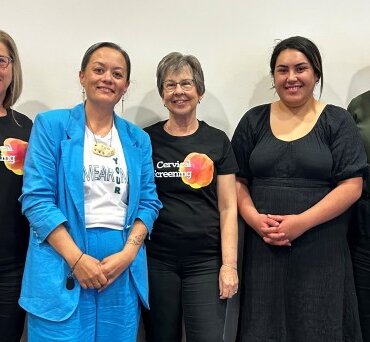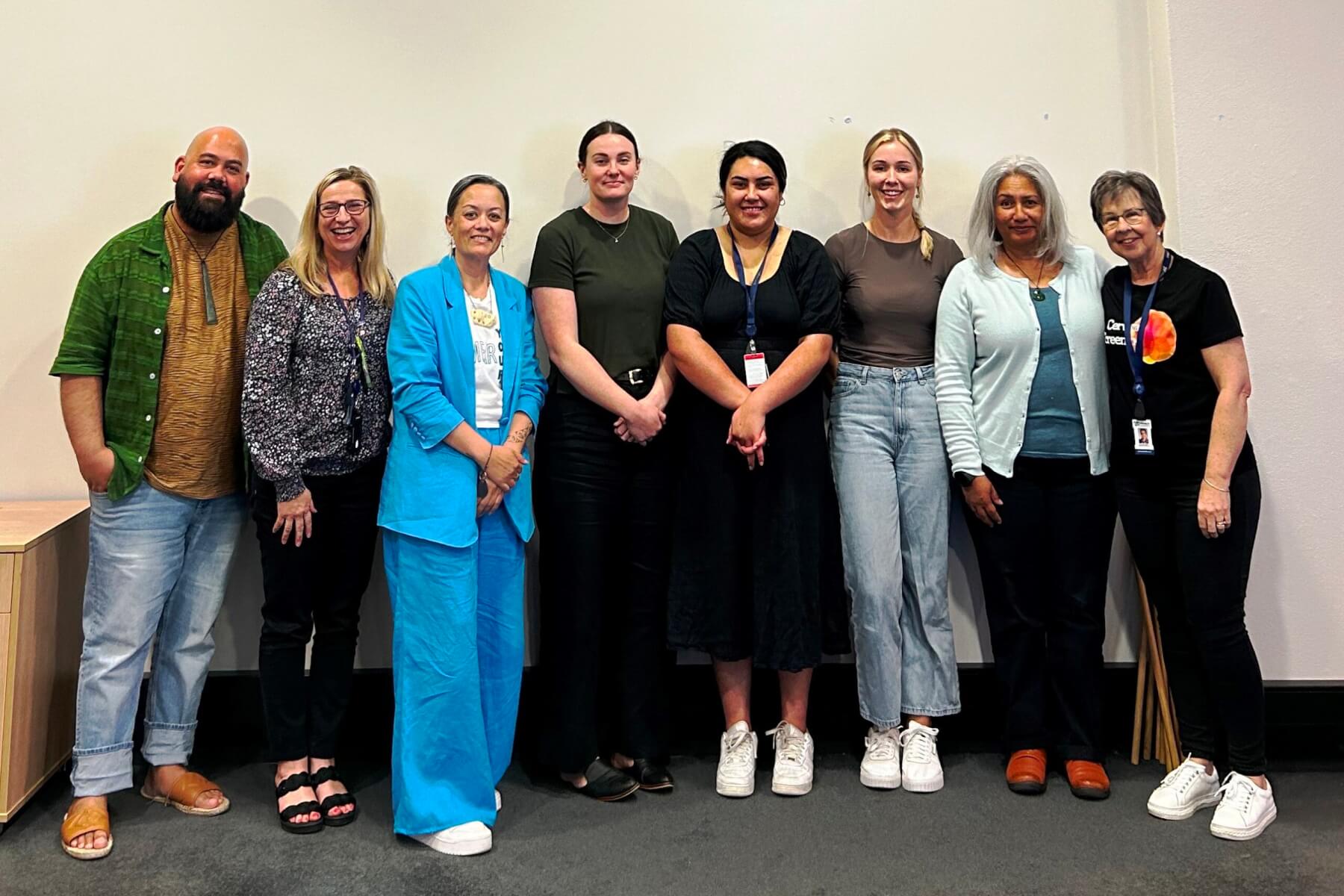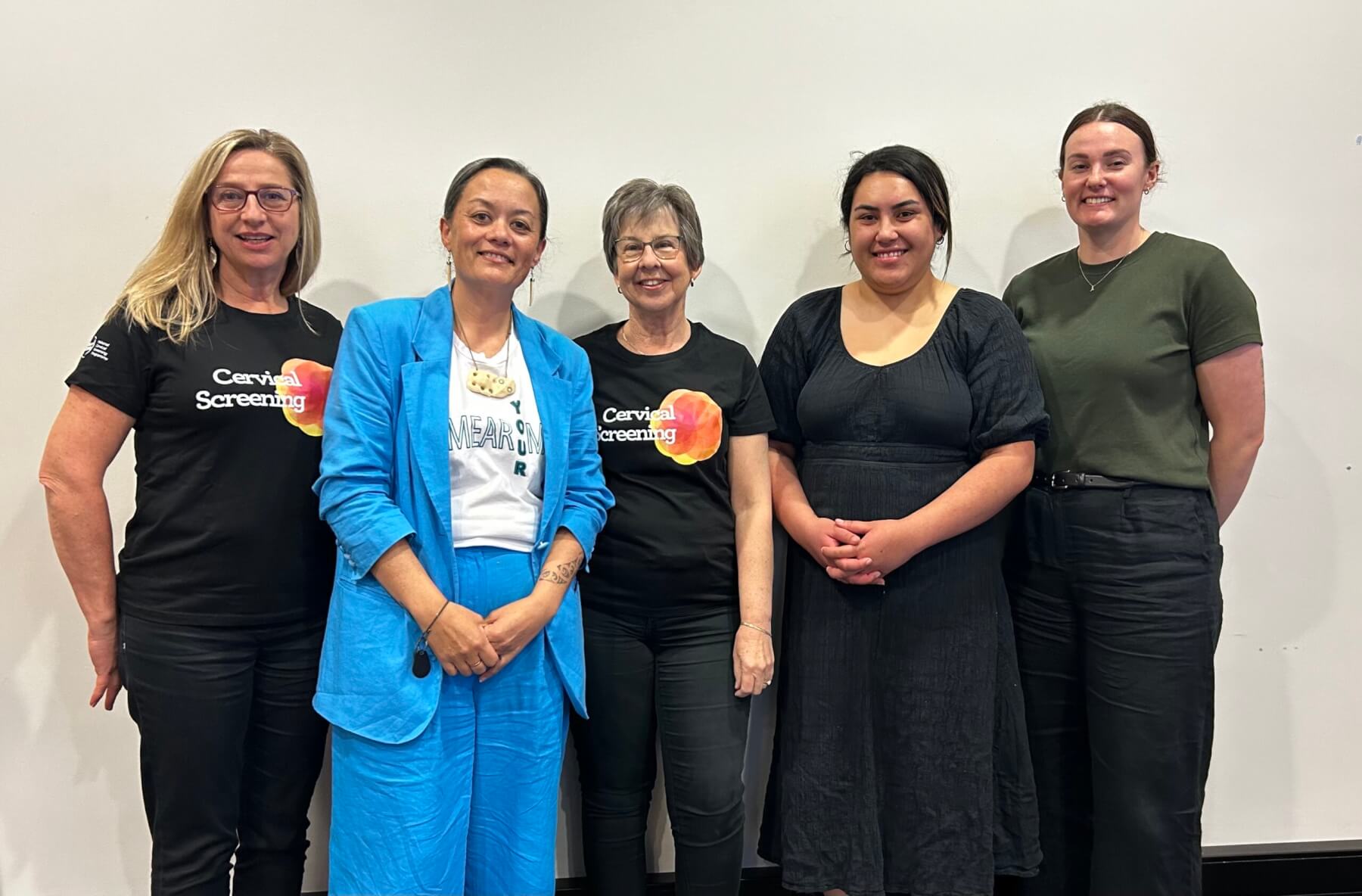
Tracey Bates, Selena Batt, Simone Schuil, Sapphire Barron, Taryn Gillespie.
When women get together, and the subject turns to health, chances are one of the things they mention is how they hate going to the doctor for cervical screening.

Stop Smoking team and Taranaki Cervical Screening mobile nurses from left: Jacob Taiapa, Tracey Bates, Selena Batt, Taryn Gillespie, Sapphire Barron, Hannah Lang, Te Maramatanga Hohaia, Simone Schuil.
Some are so embarrassed by the prospect they refuse their screening; many have never bothered to go at all.
But since September last year, Te Whatu Ora’s National Cervical Screening Programme has had human papillomavirus (HPV) self-testing available and it has been a game changer.
“When I do in-home visits and explain how easy the new test is to do, it overcomes barriers to screening particularly for any woman who has been reluctant in the past,” Pinnacle Support to Screening mobile outreach nurse Tracey Bates says.
“We consistently see women who have refused screening but are then happy to do it themselves in the comfort of their own home.”
In the past year Pinnacle outreach mobile nurses have screened 776 hard to reach priority group women in the Waikato. They have all been referred to the service by their GPs at Pinnacle’s Cambridge and Tamahere medical centres.
The focus has been on Māori and Pacific communities and disengaged women.
“There is no doubt screening saves lives but for some women the previous standard speculum examination was embarrassing and painful, which prevented them from having it done,” says Bates.
“We have been able to successfully screen women who are 20-30 years overdue or never been screened before.”
The test, which takes about 20 seconds, checking for the human papilloma virus which causes more than 95 per cent of all cervical cancers.

The Cervical Screening Support to Services outreach team from left : Tracey Bates, Selena Batt, Simone Schuil, Sapphire Barron, Taryn Gillespie.








